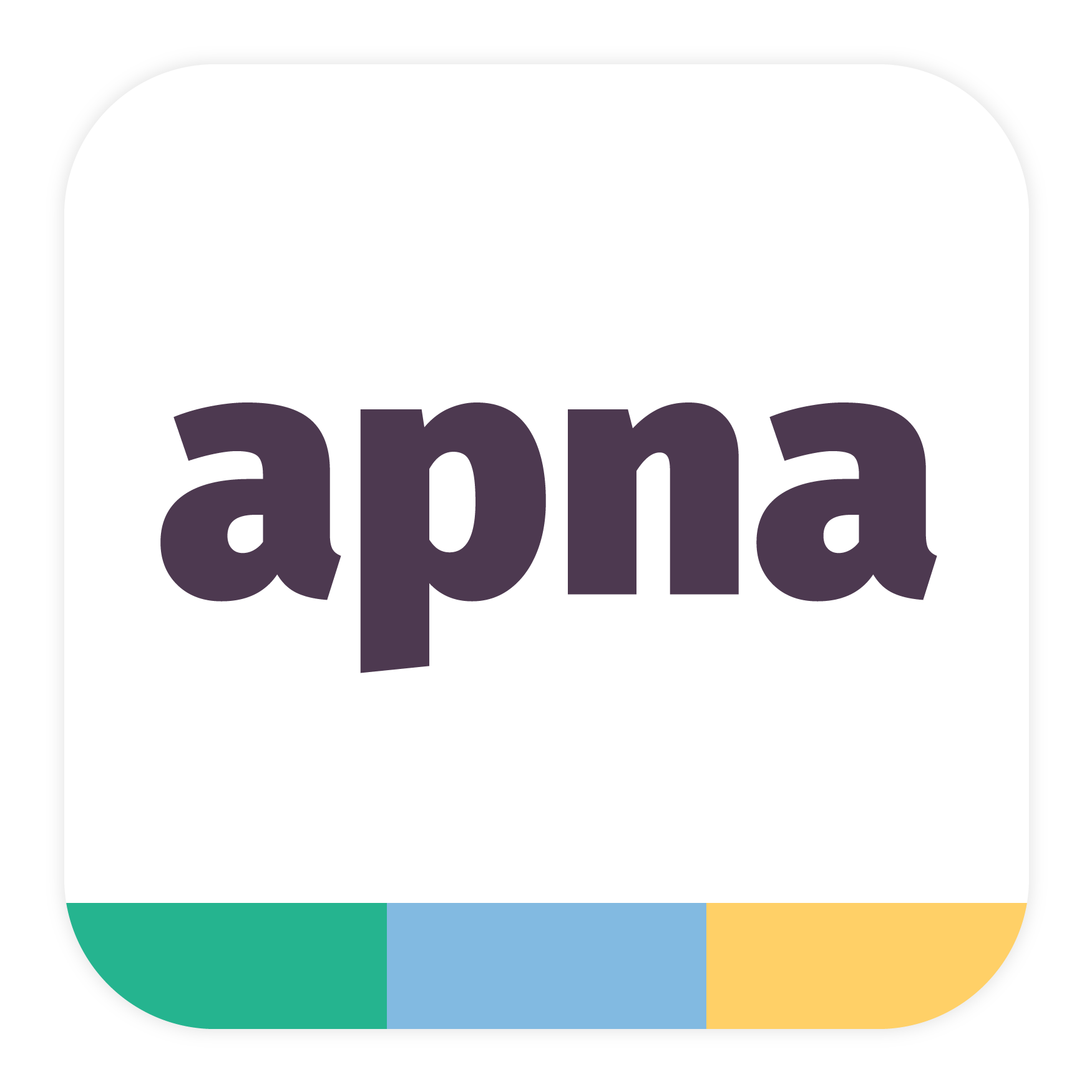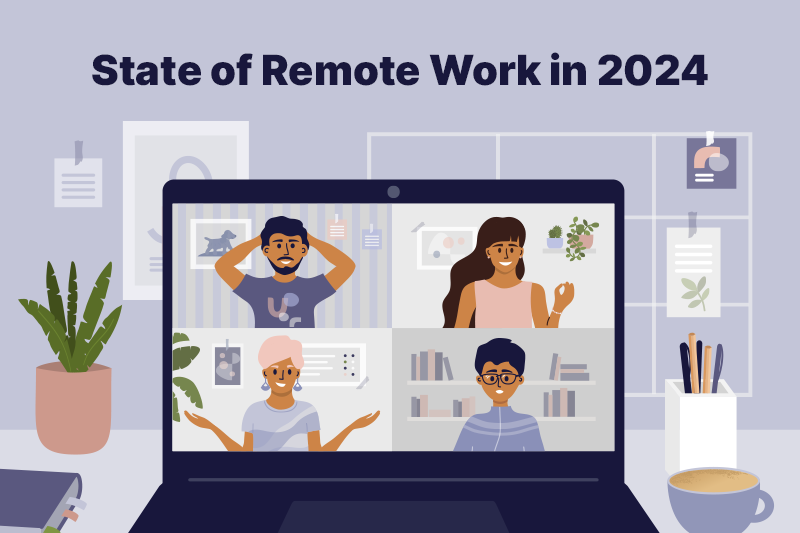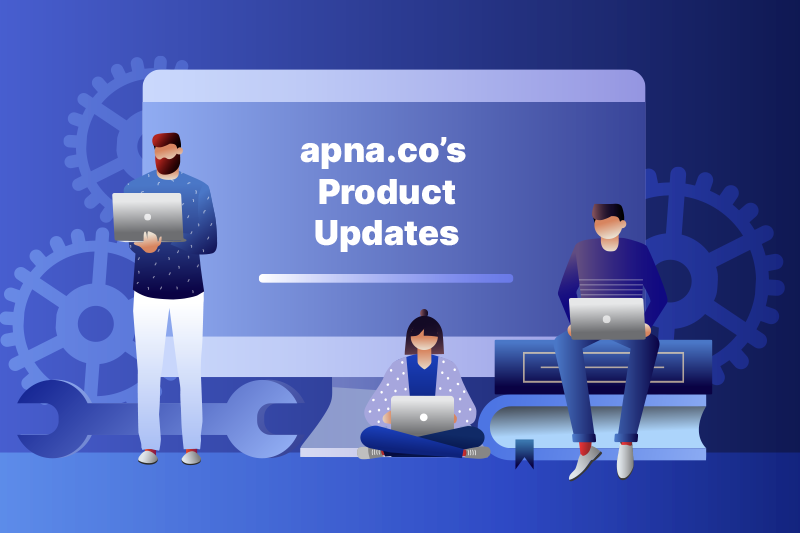Beyond Traditional HR: Boosting Employee Mental Health to Promote Wellness & Success
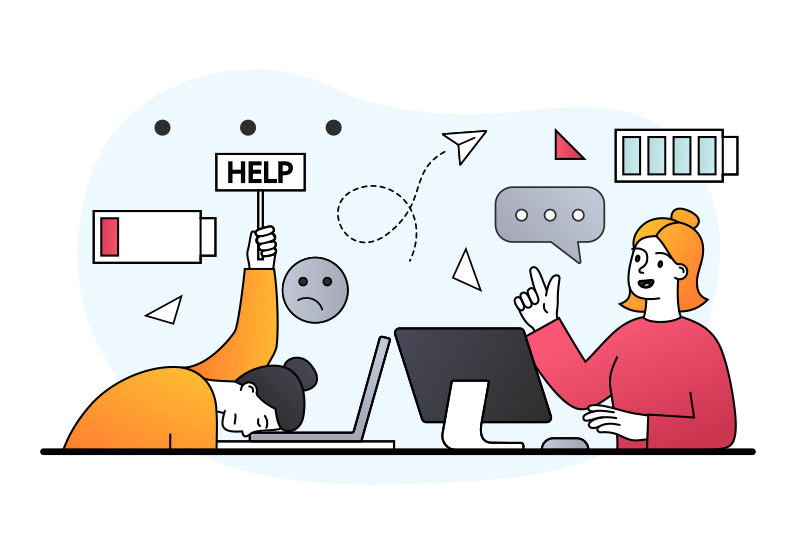
10th October, the World Mental Health Day, is just around the corner. While mental health is important in each sense, off-late employee mental health has emerged with undeniable prominence. According to recent research, 42% of global employees have experienced a decline in mental health since the pandemic began.
Beyond the traditional roles of HR, today's HR professionals are also tasked with a vital mission - to prioritize and enhance employee mental health. According to a 2022 report by WHO, the workplace is a key example of a setting where transformative action on mental health is needed.
In this comprehensive guide, we'll delve into the world of employee mental health, its causes, and most importantly, how HRs can take proactive steps to revolutionize the workplace by supporting and boosting mental well-being.
What is Employee Mental Health?
According to Betterup, mental health is a state of well-being in which an individual can cope with everyday stressors, work productively, reach his/her full potential, and contribute to their community. Mental health touches every aspect of our lives, especially workplace performance.
Employee mental health encompasses an individual's emotional, psychological, and social well-being within the workplace. It goes beyond the absence of mental illness and reflects an employee's ability to manage stress, maintain a healthy work-life balance, and engage productively with colleagues and tasks.
What Causes Poor Mental Health at Work?
Several factors can contribute to poor mental health in the workplace, including:
- Excessive Workload: An overwhelming workload can lead to stress and burnout.
- Lack of Work-Life Balance: An inability to balance work and personal life can strain mental health.
- Unclear Expectations: Employees may feel anxious or stressed when they are uncertain about their roles and responsibilities.
- Inadequate Support: A lack of emotional and/or managerial support can aggravate mental health issues.
- Job Insecurity: Fear of job loss or an unstable work environment can lead to anxiety and depression.

Impact of Poor Employee Mental Health: Why Should Companies Worry About it?
The repercussions of poor employee mental health extend beyond the individual to affect the entire organization. Some of the adverse effects include:
- Reduced Productivity: Employees grappling with mental health issues may struggle to focus and perform efficiently.
- Increased Absenteeism: Mental health problems often lead to employees taking more leaves, affecting team dynamics. According to WHO, globally, an estimated 12 billion working days are lost every year to depression and anxiety at a cost of US$ 1 trillion per year.
- High Turnover: Poor mental health can contribute to higher turnover rates, resulting in recruitment and training costs.
- Negative Workplace Culture: An unhealthy work environment can lead to low morale and increased conflicts.
- Legal and Ethical Concerns: Neglecting employee mental health can expose companies to legal and ethical dilemmas.
Ways HR Can Support Employees’ Mental Health
Now that we understand the significance of employee mental health, let's explore actionable steps HR professionals and recruiters can take to revolutionize the workplace:
Combat Stigma: Cultivate Mental Health Awareness
Break the silence surrounding mental health by creating an open and stigma-free environment. Encourage employees to share their experiences and struggles, fostering understanding and empathy. You can also organize mental health awareness campaigns, workshops, and seminars to educate and empower your workforce.
Maintain Staffing Levels: Ensure Team Stability
A stable team is crucial for mental health. Frequent turnover and understaffing can lead to overwork, stress, and burnout. HRs should focus on maintaining appropriate staff levels at all times. A well-balanced team promotes a healthier work environment, reduces stress, and enhances overall job satisfaction. apna.co can help HRs in this respect by facilitating seamless hiring across all industries.
Also Read : apna's Value Proposition for Employers: An Insider’s View for Maximizing Opportunities
Stress Management Priority: Tackle Workplace Stress
Stress is an inevitable part of any job, but excessive workplace stress can take a toll on employee mental health. According to the American Institute of Stress, 94% of workers report feeling stress at work, and nearly one-third describe their stress level as high to unusually high. HR professionals should prioritize stress management initiatives. Implement stress-reduction programs, encourage regular breaks, and create a culture that promotes well-being.

Flexibility Matters: Embrace Flexible Scheduling
In today's fast-paced world, flexibility in the workplace is vital for mental health. According to APA’s 2021 Work and Well-being Survey, 34% of employees say that flexible hours would help their mental health. Offer employees the freedom to manage their work schedules and work locations whenever possible. Flexible scheduling can reduce the pressure of rigid work hours, allowing employees to better balance their personal and professional lives.
Resource-rich Environment: Mental Health Support Training
Equip your workforce with the knowledge and tools to identify and address mental health concerns. Offer training sessions and provide access to mental health resources. A resource-rich environment empowers employees to take charge of their mental well-being and seek help when needed.
Empathy at Work: Consistent Employee Check-ins
Foster a culture of empathy by consistently checking in with employees to understand their needs and concerns. These check-ins not only promote mental well-being but also strengthen the employee-employer relationship. Make it a priority to listen, empathize, and provide support when necessary.
Managerial Training: Equip Managers with Mental Health Skills
Managers play a pivotal role in supporting employee mental health. According to 69% of people, their managers had the greatest impact on their mental health. Invest in managerial training programs that equip leaders with the skills to recognize signs of mental distress, provide support, and create an environment where employees feel valued and heard. Empower managers to lead by example when it comes to mental health awareness and open dialogue.
Benefits that Count: Employee Benefits that Support Well-being
Employee benefits should include provisions for mental health care, such as counselling services and access to mental health professionals. A comprehensive benefits package not only attracts top talent but also demonstrates your commitment to the well-being of your employees. According to a Paychex survey, 60% of surveyed employees say that employee wellness benefits will factor into the selection of their next job.

EAP Implementation: Offer Employee Assistance Programs
Employee Assistance Programs (EAPs) provide confidential counselling and support services to employees and their families. Implementing EAPs can be a lifeline for those facing personal or work-related challenges, helping them manage their mental health effectively. A 2023 Paychex study states that 19% of employers are extremely or very likely to start offering an EAP in the next 12 months.
In conclusion, HR professionals and recruiters have a unique opportunity to lead the way in revolutionizing the workplace by prioritizing employee mental health. By implementing the above discussed strategies, HRs can create a more compassionate and thriving work environment. A mentally healthy workforce is not only more engaged and productive but also contributes to the overall success and sustainability of the organization.
Now's the time to go beyond traditional HR methods and make employee mental health a top priority in your organization.
apna app has 5 Cr+ verified candidates and is trusted by 4 lakh+ companies. Recruiters can easily find the right candidate on apna portal amongst 75+ job categories like telesales, marketing, business development, accounts & finance and many more.
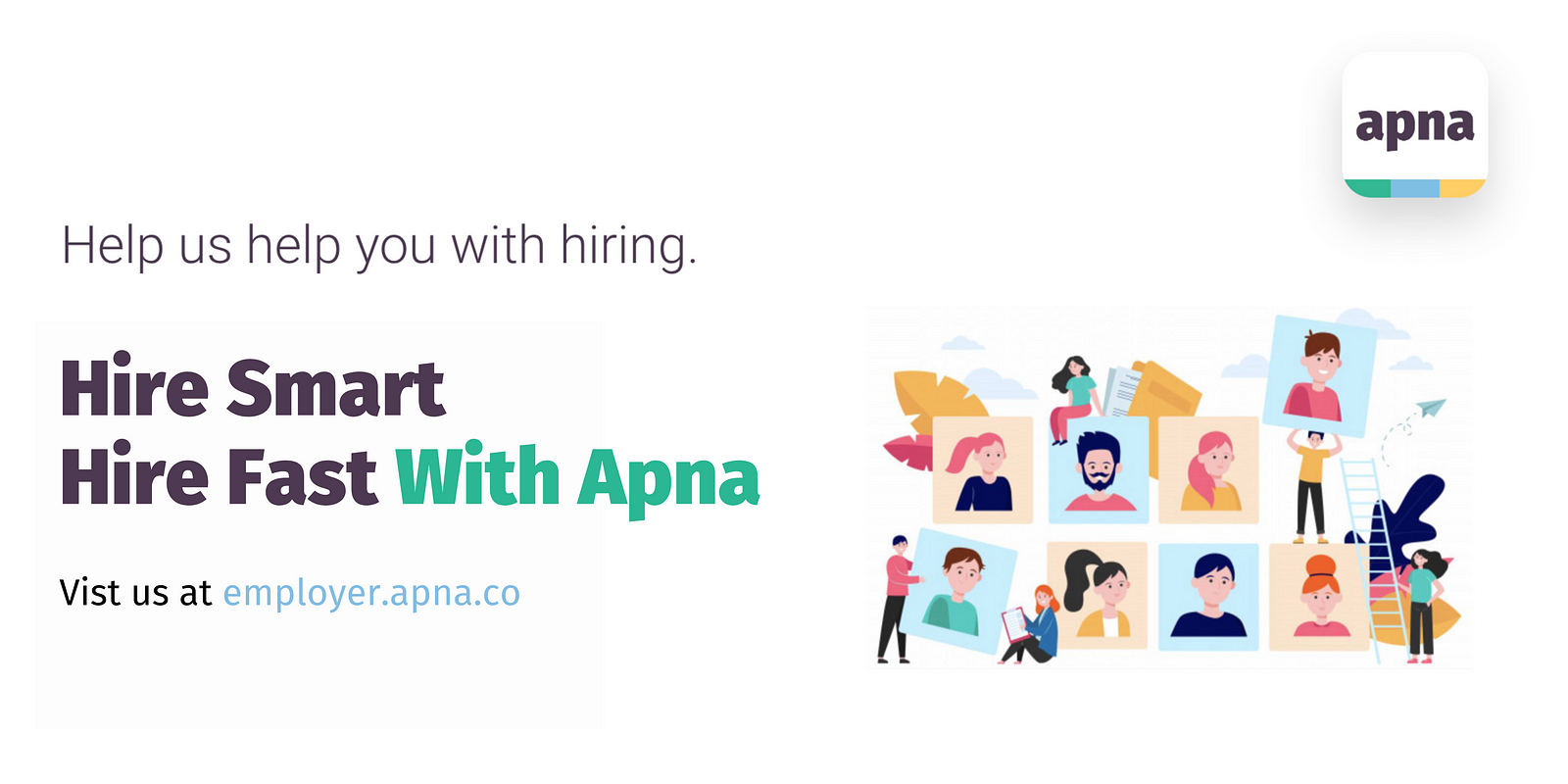
Start hiring on apna.co right now!
